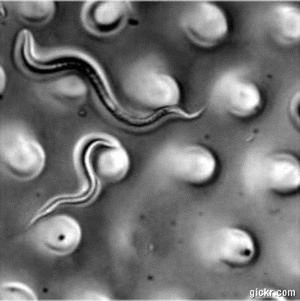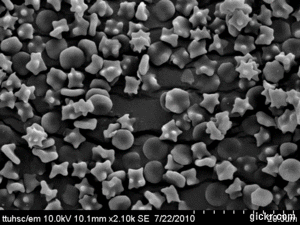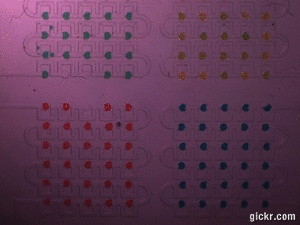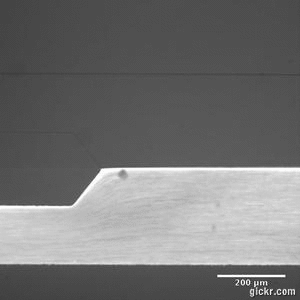










 Droplet Based Microfluidics
Microfluidic devices are currently capable of producing
Droplet Based Microfluidics
Microfluidic devices are currently capable of producing thousands of mono-disperse drops of volumes ranging
thousands of mono-disperse drops of volumes ranging from nanoliters to picoliters. This exquisite capability has
from nanoliters to picoliters. This exquisite capability has the potential to revolutionize biotechnology and disease
the potential to revolutionize biotechnology and disease diagnostics by enabling faster throughput and multi-
diagnostics by enabling faster throughput and multi- parameter screening at single cell/biomolecule resolution.
parameter screening at single cell/biomolecule resolution. 
 Researchers: Swastika Bithi, Kim Jihye, William Wang and
Meng Sun
Collaborators: Harris Wong (LSU), Raghunathan
Rengaswamy (TTU)
Click here for more details
Bio-Mechanics of Worms in Microfabricated Devices
To be updated.
Researchers: Swastika Bithi, Kim Jihye, William Wang and
Meng Sun
Collaborators: Harris Wong (LSU), Raghunathan
Rengaswamy (TTU)
Click here for more details
Bio-Mechanics of Worms in Microfabricated Devices
To be updated.  Researchers:
Click here for more details
Recent advances in microfluidics have enabled viscometers to
Researchers:
Click here for more details
Recent advances in microfluidics have enabled viscometers to be fabricated from microfluidic devices. The potential benefits of
be fabricated from microfluidic devices. The potential benefits of these microfluidic viscometers include operation with small
these microfluidic viscometers include operation with small sample volumes ranging from nanoliters to microliters and
sample volumes ranging from nanoliters to microliters and access to shear rates not achievable by conventional
access to shear rates not achievable by conventional rheometry. For biological fluids such as blood, the microfluidic
rheometry. For biological fluids such as blood, the microfluidic format also enables measurements to be made in conditions
format also enables measurements to be made in conditions mimicking blood flow in microvessels. Finally, the microfluidic
mimicking blood flow in microvessels. Finally, the microfluidic viscometers have thepotential to be multiplexed for high
viscometers have thepotential to be multiplexed for high throughput analysis.
throughput analysis.  Researchers: Deepak Solomon
Click here for more details
Engineering Devices for Cancer Diagnostics
To be updated.
Researchers: Deepak Solomon
Click here for more details
Engineering Devices for Cancer Diagnostics
To be updated. Researchers: Zeina Khan, Brandon Aday
Click here for more details
Researchers: Zeina Khan, Brandon Aday
Click here for more details







 Dynamics of Complex fluids in Microfluidic devices
Dynamics of Complex fluids in Microfluidic devices






